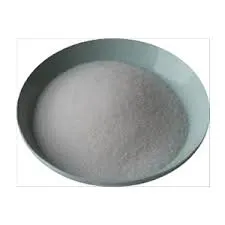- Afrikaans
- Albanian
- Amharic
- Arabic
- Armenian
- Azerbaijani
- Basque
- Belarusian
- Bengali
- Bosnian
- Bulgarian
- Catalan
- Cebuano
- Corsican
- Croatian
- Czech
- Danish
- Dutch
- English
- Esperanto
- Estonian
- Finnish
- French
- Frisian
- Galician
- Georgian
- German
- Greek
- Gujarati
- Haitian Creole
- hausa
- hawaiian
- Hebrew
- Hindi
- Miao
- Hungarian
- Icelandic
- igbo
- Indonesian
- irish
- Italian
- Japanese
- Javanese
- Kannada
- kazakh
- Khmer
- Rwandese
- Korean
- Kurdish
- Kyrgyz
- Lao
- Latin
- Latvian
- Lithuanian
- Luxembourgish
- Macedonian
- Malgashi
- Malay
- Malayalam
- Maltese
- Maori
- Marathi
- Mongolian
- Myanmar
- Nepali
- Norwegian
- Norwegian
- Occitan
- Pashto
- Persian
- Polish
- Portuguese
- Punjabi
- Romanian
- Russian
- Samoan
- Scottish Gaelic
- Serbian
- Sesotho
- Shona
- Sindhi
- Sinhala
- Slovak
- Slovenian
- Somali
- Spanish
- Sundanese
- Swahili
- Swedish
- Tagalog
- Tajik
- Tamil
- Tatar
- Telugu
- Thai
- Turkish
- Turkmen
- Ukrainian
- Urdu
- Uighur
- Uzbek
- Vietnamese
- Welsh
- Bantu
- Yiddish
- Yoruba
- Zulu
નવેમ્બર . 24, 2024 07:13 Back to list
Ivermectin Injectable Solution for Animal Health and Parasite Control
Ivermectin for Injection A Comprehensive Overview
Ivermectin is a broad-spectrum antiparasitic agent that has gained increased attention in recent years, not only for its established use in veterinary medicine but also for its applications in human medicine. Originally developed in the late 20th century, ivermectin has been a key player in the fight against various parasitic infections, particularly in developing countries where these ailments are prevalent.
Mechanism of Action
Ivermectin works by binding to specific chloride channels in the parasites’ nervous system, leading to paralysis and death of the organism. This mechanism is particularly effective against a variety of parasites, including roundworms, ectoparasites like lice and scabies, and some external parasites such as mites. Due to its ability to target these organisms without significantly affecting mammalian cells, ivermectin offers a favorable safety profile in both human and veterinary applications.
Uses in Veterinary Medicine
In veterinary medicine, ivermectin is widely utilized for the treatment and control of parasitic infections in a range of animals, including cattle, sheep, horses, and dogs. Formulations can vary, including oral, topical, and injectable forms. The injectable form of ivermectin is particularly valuable because it provides a longer duration of action and is suitable for animals that may be difficult to medicate by other means. Moreover, its use helps to improve animal health, enhancing productivity and economic viability in agricultural contexts.
Human Applications
In humans, ivermectin is primarily used to treat several parasitic infections, including lymphatic filariasis, onchocerciasis (river blindness), and strongyloidiasis. The World Health Organization (WHO) has included ivermectin on its List of Essential Medicines, underscoring its importance in global health initiatives. The drug’s administration as a single oral dose is often sufficient for many of the aforementioned infections, contributing to its appeal.
ivermectin for injection

Controversies and Recent Interest
In recent years, ivermectin attracted significant attention as a potential treatment for COVID-19. Despite initial excitement, subsequent studies and reviews concluded that there was insufficient evidence to support the use of ivermectin for this purpose. Regulatory authorities, including the FDA and WHO, have recommended against its use for COVID-19 outside of controlled clinical trials, emphasizing the need for rigorous scientific investigation.
However, the controversy has highlighted the importance of understanding the limitations and appropriate contexts for ivermectin's application. Misuse and overuse of the drug can lead to adverse effects and contribute to the development of resistance among parasites, which could undermine its efficacy for established uses.
Safety and Dosage
When used appropriately, ivermectin is generally well-tolerated. Common side effects may include dizziness, nausea, and gastrointestinal discomfort, particularly when individuals are infected with high loads of parasites. The injectable formulation requires careful handling, and doses must be accurately calculated based on the weight of the animal or patient to avoid toxicity.
For veterinary use, dosages can vary depending on the species and the specific parasites being targeted. In human medicine, the dosing is also weight-dependent, typically ranging from 150 to 200 micrograms per kilogram, depending on the condition being treated.
Conclusion
Ivermectin remains a crucial tool in combating parasitic infections across species. Its role in both veterinary and human medicine underscores its versatility and effectiveness. While the controversies surrounding its use for COVID-19 have highlighted the need for continued research and cautious application, the established benefits of ivermectin in treating various parasitic diseases cannot be overstated. The ongoing monitoring of its usage, potential side effects, and evolving research will be instrumental in ensuring that ivermectin retains its place as a cornerstone of antiparasitic therapy worldwide.
-
Guide to Oxytetracycline Injection
NewsMar.27,2025
-
Guide to Colistin Sulphate
NewsMar.27,2025
-
Gentamicin Sulfate: Uses, Price, And Key Information
NewsMar.27,2025
-
Enrofloxacin Injection: Uses, Price, And Supplier Information
NewsMar.27,2025
-
Dexamethasone Sodium Phosphate Injection: Uses, Price, And Key Information
NewsMar.27,2025
-
Albendazole Tablet: Uses, Dosage, Cost, And Key Information
NewsMar.27,2025













